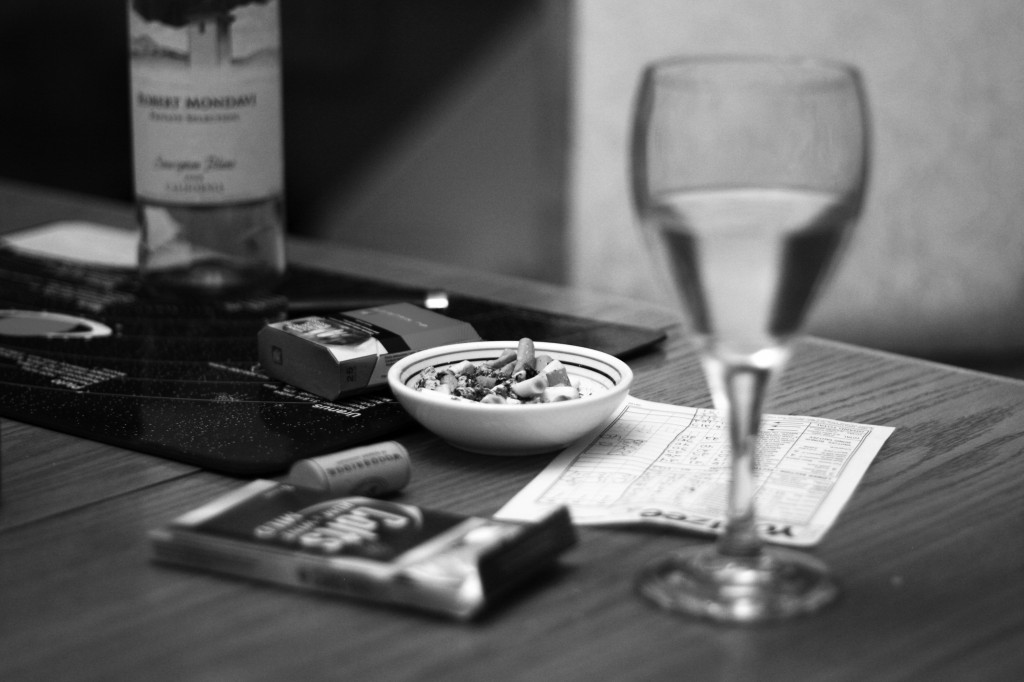Stress Is the Secret Ingredient That Makes Booze And Cigarettes a Perfect Match
Nicotine interferes with alcohol’s ability to produce a surge of pleasurable, stress-reducing dopamine in our brain, increasing our desire to keep drinking

Photo: SBC9
For smokers, booze and cigarettes often go together like peanut butter and jelly. According to new research, this is no coincidence. The impetus behind the pairing of these vices, the Los Angels Times reports, is likely stress.
According to a study published Thursday in the journal Neuron, nicotine — the main addictive ingredient in tobacco — appears to prime the desire to drink alcohol, and to drink more alcohol. But, the study reveals, it takes stress hormones to seal the deal.
When we take that first swig of beer, our dopamine levels begin to climb. This neurotransmitter is associated with pleasure and addiction, which explains why a happy hour drink after a long day at work can taste so darn good. Basically, alcohol acts as self-medication for relieving stress and tension.
Nicotine, however, upsets this response, found a team of Baylor College of Medicine researchers led by neuroscientist John A. Dani. When this part of the brain is already bathed in stress hormones and you add nicotine, alcohol suppresses the flood of dopamine throughout the basal forebrain. The natural response might well be to take on more alcohol in a bid to attain that elusive feel-good buzz.
In trials with rats, those given a shot of nicotine drank up from a bowl of beer more readily than those that were nicotine-free. When those same rats had their coritsol (a stress hormone) levels manually reduced, however, they drank no more than their non-nicotine plied counterparts. These vicious cycle findings, the Times writes, “may help explain why alcoholism is roughly 10 times more prevalent in smokers than in non-smokers.”
More from Smithsonian.com:
How to Kick that Smoking Habit
Experimental ‘Alcoholism Vaccine’ Gives Drinkers an Instant Hangover
/https://tf-cmsv2-smithsonianmag-media.s3.amazonaws.com/accounts/headshot/Rachel-Nuwer-240.jpg)
/https://tf-cmsv2-smithsonianmag-media.s3.amazonaws.com/accounts/headshot/Rachel-Nuwer-240.jpg)